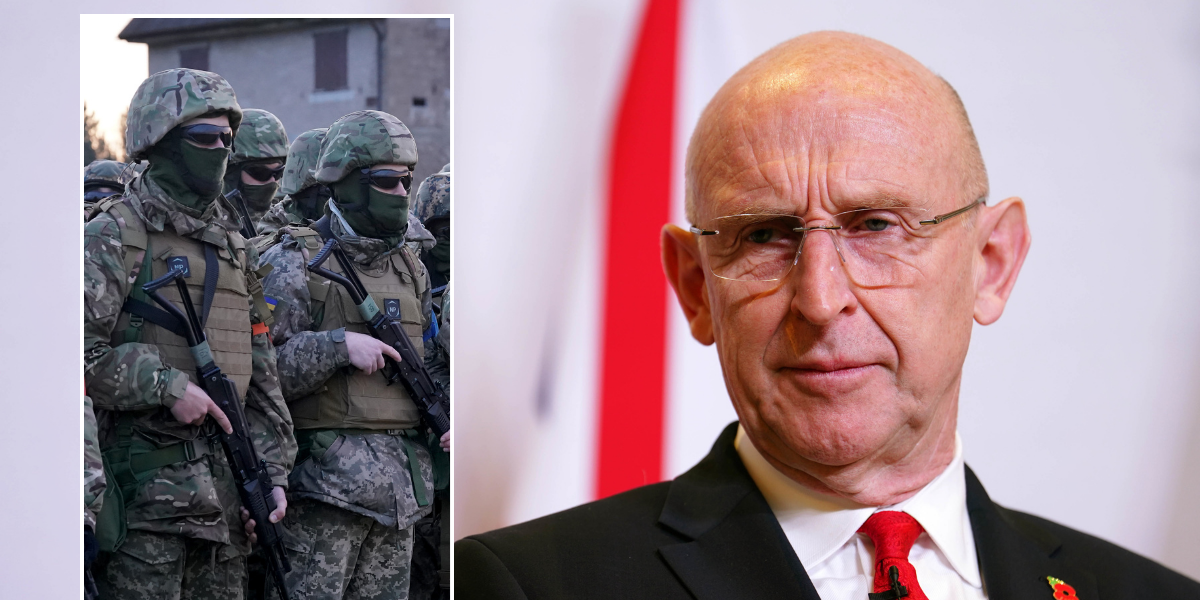The State of the UK Armed Forces: A Call for Readiness and Deterrence
In a stark warning that has reverberated through the corridors of power, UK Defence Secretary John Healey has emphasized the pressing need for the United Kingdom to bolster its military readiness. In a recent statement, Healey declared that the UK is "not ready to fight," a sentiment that underscores the growing concerns regarding national security and the effectiveness of the armed forces in deterring potential aggressors, particularly in the context of NATO.
Acknowledging the Reality
Healey, the MP for Rawmarsh and Conisbrough, has painted a sobering picture of the current state of the UK armed forces. He noted that while the military has become "very skilled and ready to conduct military operations," it lacks the necessary preparedness to engage in a full-scale conflict. This revelation comes as a shock to many, as it suggests that the military’s operational capabilities may not be as robust as previously believed. Healey’s comments reflect a broader acknowledgment among ministers that the condition of the armed forces is "far worse than we thought."
The Need for Effective Deterrence
The Defence Secretary’s remarks are particularly timely, given the escalating tensions in Europe and the growing threat posed by Russia. In a recent defence pact signed between the UK and Germany, both nations have committed to closer cooperation in response to these threats. This agreement includes the deployment of German submarine-hunting planes from RAF Lossiemouth in Scotland and the establishment of a factory by arms manufacturer Rheinmetall to produce artillery gun barrels using British steel.
Healey emphasized that the UK must not only be capable of defending NATO nations but also be more effective in deterring future aggression. He stated, "We’ve got to not just be capable of defending our NATO nations, but more importantly, got to be more effective in the deterrence that we can provide against any future aggression." This call for enhanced deterrence is crucial as global geopolitical dynamics continue to shift.
Innovation and Adaptation
One of the key themes in Healey’s address was the necessity for the UK armed forces to innovate and adapt. He highlighted the importance of integrating new technologies and lessons learned from the ongoing conflict in Ukraine. "Our forces need to be able to innovate," he said, stressing that making military operations "more lethal" is essential for establishing a stronger deterrent posture. This focus on modernization and adaptation is vital in an era where warfare is increasingly influenced by technological advancements.
The Hollowing Out of the Armed Forces
Healey’s comments also touched upon the historical context of the armed forces’ current state. He referenced former Defence Secretary Ben Wallace’s assertion that successive Conservative governments had "hollowed out and underfunded the armed forces" over the past 14 years. This critique raises important questions about the long-term sustainability and effectiveness of the UK’s military capabilities, particularly in light of evolving global threats.
Government Response and Future Outlook
In response to Healey’s statements, a government spokesperson reiterated the commitment to defending the nation, asserting that the UK’s armed forces are among the best in the world. They emphasized that the Strategic Defence Review would assess the threats faced by the UK and the capabilities needed to ensure that the armed forces are better prepared for future conflicts. This review is expected to play a crucial role in shaping the future of the military and addressing the concerns raised by Healey.
Global Implications and Escalation Concerns
The geopolitical landscape is further complicated by developments in other regions, particularly the potential involvement of North Korean troops in Russia. Healey indicated that it is "highly likely" that North Korean forces are present in Russia, although their deployment to the front lines of the war in Ukraine remains uncertain. This situation highlights the interconnectedness of global conflicts and the potential for escalation, not only in Europe but also in the broader Pacific region.
Conclusion
As the UK grapples with the realities of its military readiness, the call for a more effective deterrent strategy has never been more urgent. John Healey’s candid assessment of the armed forces serves as a wake-up call for policymakers and military leaders alike. The need for innovation, adaptation, and increased funding is paramount to ensure that the UK can effectively respond to emerging threats and maintain its commitments to NATO allies. The future of the UK’s military capabilities hangs in the balance, and decisive action is required to safeguard national security in an increasingly volatile world.
